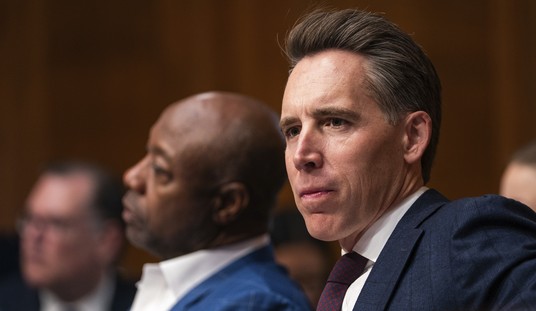In the old days, university teachers used to post their grades on their office doors at end of term for all to see. Usually — although not always — student names were omitted from the list, the students identified only by their student numbers. Eventually the practice, like many reasonable ones, had to be abandoned due to privacy concerns. When I was a new professor at a Canadian university on the prairies, I used to go around to my colleagues’ doors to see the spread of their grades and occasionally to note how my favorite students, the best of the past term, were faring in other courses.
So far as I am aware, my assessment of the students was uncolored by personal preference. Excellent students tend to stand out markedly from their merely adequate or promising peers, their understanding and expression inarguably superior. Of course, it is possible that the students I had singled out as brilliant did not perform equally well in other classes for a variety of personal or academic reasons, though it is far more often the case that an excellent student performs equally well — or nearly so — in all of his or her courses.
When I checked my colleagues’ doors, I was immediately struck that some students I had identified as superior received merely good rather than excellent grades — marks in the low 80s (no longer a high mark in our grade-inflated times), lumped in with many others of only moderate ability. In some cases a student I had deemed excellent received exactly the same grade as a student whose performance was not at all outstanding. There they were: both at 82. A number of professors, I noted, employed a narrow band of marks, ranging from 68 at the very low end (C+) to 83 or 84 (A-) at the high end, with the majority of students clustered in the 77-80 range. Were the students really all so indistinguishably “good” in these classes? My experience had always been, and continues to be, that students are vastly different both in their capabilities and their performance, ranging from the astonishingly superior A+ — so good that one wonders helplessly what one has to teach such a student — to the abysmal F — so bad that, again, one wonders helplessly what one can teach such a student. So why the compressing of grades in the “fair to quite good” band?
I also noticed, in speaking to my colleagues, that the criterion of excellence did not dominate their assessments of students so clearly as I had expected. Professors were concerned with a range of human factors: how hard the student had tried, the evident improvement of the student over the term, and, perhaps most especially, the difficulties against which the student was struggling. These difficulties often figured in their justifications. “She is a single mother with two young children,” one of my colleagues said to me in explanation of why she accepted a late paper without applying her regular penalty, “I’m amazed that she can manage to attend at all, and I wanted to reward her for her perseverance against the odds.”
“I wanted to give him a mark that showed his great improvement over the term,” another said in explanation of awarding an A- (that ultimate fudge grade, which has replaced the former B+ fudge-grade) to a student whose written work was still decidedly rough, with numerous grammatical and structural lapses. “He has come such a long way despite all the circumstances stacked against him; and I know his success will enable him to become a role model for his community.” Instructor assessment of the personal factors behind student performance did not only work in favor of disadvantaged students but also, in some cases, against the proficient: “Yes, he is very good,” another said, in response to my praise for a young man whose ability had impressed me, “But I didn’t get the sense he had as much personally invested as some of his classmates, who had really lived the experience of oppression the poetry explores. For that reason, they were able to bring a depth of personal response and passion that his more scholarly approach couldn’t supply.” Pretty hard to argue against so committed a betrayal of objectivity.
It might seem churlish, even inhumane, to quarrel with an instructor who wants to reward character, commitment, or hard work in his students — or even personal ability to “respond” to course work — but nonetheless I was frequently appalled by the mishmash of personal and socio-political reasons my colleagues cited in explanation of their grades. Was this what university had become, I asked myself, an institution in which the instructor weighed non-academic factors, ranging from socio-economic class to psychiatric history to identity category, in deciding what mark to give? Was excellence really such a malleable quality that grades could be determined by an instructor’s feelings, political sympathies, and social assessments? Was I wrong to feel that only hypocrisy and corruption could come from awarding grades on the basis of wishful thinking and good intentions?
Granting that my assessment is accurate — and certainly analyses of the phenomenon of grade inflation are incontrovertible, though it is far more difficult to ascertain how instructors decide to award the grades they give and whether they grade improperly — a range of factors has combined to produce our current situation. The largest and most obvious is the wide-scale perception, from the highest levels of the university administration on down, that universities are about “social justice,” that they are designed to correct past wrongs and to promote progressivist goals, and that the shaping of socially conscious and activist-minded citizens rather than academically proficient students is their fundamental end.
Stanley Fish has shown, in Save The World On Your Own Time, the prominence given to social goals alongside academic ones in the mission statements of most modern universities. The draft Strategic Plan of my own institution includes “civic responsibility” as part of its mandate, which it defines as “the value we place on sustainable development, diversity, integrity, respect for others, and equality.” It is nowhere stated in university manifestos that grades themselves will be determined with such ends as “equality” in mind; but there is a logical consistency in linking grading practices to the other well-known “diversity” practices of the university, such as placement quotas for minority students, special scholarships for the disadvantaged, social-justice oriented courses and departments, and the professoriate’s widespread left-leaning perspective in both pedagogical and discipline-specific theory. When university as a whole is no longer about the pursuit of truth but about the forming of the whole person and commitment to “diversity” and “equality” (the code words of liberationist ideologies), why should not decisions about grades be influenced by the same philosophy?
Indeed, when one begins from the assumption that one’s society has been profoundly shaped by historical injustices and that such injustices continue to account for the differences in economic strata and conditions of various groups — when prison statistics are used to prove not who is committing crime but who is oppressed by the dominant powers; when the existence of the poor is seen as an index of the unfair advantage of the wealthy, and so on — then any standard of merit becomes unstable. If one’s worldview finds in social contexts such as poverty and prejudice an explanation for all human differentials, then academic achievement will be understood in the same terms. Under such thinking, it is not fair to judge student X by criteria determined and applied by an oppressor class, for such criteria will merely guarantee student X’s continued subjection. Grading becomes, in this way of thinking, a politically fraught activity for which active resistance and subversive measures must be summoned.
Lest this explanation seem overly elaborate or paranoid, consider that the majority of academics working in North American universities today, especially in the Humanities and Social Sciences disciplines, are not only on the political left but are sympathetic to and influenced by far-left ideologies such as Marxism, post-colonialism, radical feminism, and queer identity politics. (See, for example, the report by the California Association of Scholars on the politicization of the University of California system.) On the whole, they believe both that Western society in its present form is racist, sexist, homophobic, and Islamophobic, and also that their primary function as radical professors, even above the teaching of their specific area of expertise, is to redress the perceived violence perpetrated against the West’s victims. Their socio-political commitments are on display in their published scholarship and often evident in their classroom practice — though the latter is more difficult, though not impossible, to ascertain (as David Horowitz’s The Professors revealed). To assume that such commitments would not influence grading is to mistake the depth and earnestness of their beliefs. Even those professors whose political sympathies are centrist-liberal rather than leftist will by and large agree that social justice should play some role in the university’s modern mandate.
Moreover, there is in many progressive circles a vague, often inarticulate, bias against ability of various kinds, particularly economic ability and success, but also intellectual ability. Just as the able businessman is assumed to be mistreating or cheating his employees and the successful investor to be engaged in shady financial dealings, so there is a subtle taint of unfair advantage attached to the brilliant student. When failure (crime, drug addiction, violence, poverty, unemployment) is explained by oppression, achievement has a hard time disassociating itself from oppressiveness. The high-performing student is often assumed, even if only unconsciously, to be coasting on some form of unfair advantage.
Other factors operate as well to produce the grading practices I observed. Many left-leaning instructors are simply not very interested in grades, finding the whole process of differentiation distasteful, the academic equivalent of the cruel laissez-faire economy. Assigning grades violates their egalitarian sympathies. Others are a bit threatened by bright students, who ask uncomfortable questions. Although some left-leaning instructors enjoy a good political argument, many are not used to defending their assumptions against opposing points of view, having spent all of their lives in the company of fellow travelers. It is sometimes the case, also, that high-functioning students are instinctively opposed to their instructor’s left-leaning mandate, disrupting his or her time-honored classroom practices.
It is also possible, I believe, that some instructors are simply befuddled. Having held to a leftist faith for a long time — resolutely ignoring or deriding anything that might disprove their beliefs — they are no longer capable of evaluating evidence or arriving with confidence at an independent judgement. What they know is the doctrine of benevolence, the mantra of race and class justice, the imperative to fight against social wrongs. On these principles only can they act with conviction, certain that an army of the like-minded will stand behind them, roaring approval. They see truth-bending practices at work, and applauded, in many spheres of their society — in an entire legal system that gives lighter sentences to the socially oppressed, in government policies of affirmative action, in President Obama’s championing, without evidence, of a black “victim” named Trayvon who may have been a perpetrator. Making decisions on the basis of merit alone is beyond them. Having once felt the exhilaration of marching shoulder-to-shoulder in some ostensibly righteous cause, they have forgotten — or never learned — how to make their way in any other manner.
It is a pity that “social justice” should lead to inconsistent and inaccurate — and deeply unfair — grading practices; and that the equality mandate should have so undermined the academic enterprise.








Join the conversation as a VIP Member